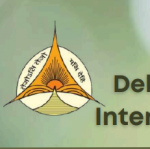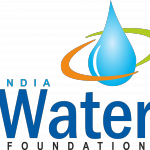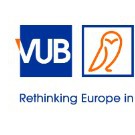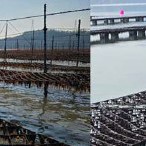Boosting Resilience in the Seaweed Industry - Focus on Risk Management Policies and Practices in South Korea and Other Regions

Boosting Resilience in the Seaweed Industry: Focus on Risk Management Policies and Practices in South Korea and Other Regions
We are pleased to share that our research on “Boosting Resilience in the Seaweed Industry: Focus on Risk Management Policies and Practices in South Korea and Other Regions” was presented at the One Ocean Science Congress in Nice, France (June, 2025).
Our international research team, with researchers from UNU-CRIS (Belgium), University of the Highlands and Islands (UK), University of Ghent (Belgium), McMaster University (Canada), Scottish Association for Marine Science (SAMS), and universities in South Korea, conducted an analysis examining how financial instruments like Aquaculture Disaster Insurance (ADI) can strengthen resilience in the global seaweed industry. South Korea proves a successful primary case in our study: its seaweed sector produced 1.74 million tons in 2023, with Pyropia spp. (nori) exports alone reaching nearly USD 1 billion, representing over 70% of the global market.
Key Findings
In our research findings we identified six factors that have fueled the thriving seaweed industry in South Korea. The nation’s approach combines technological innovation, regulatory frameworks, and financial risk management. Particularly the growth of its Aquaculture Disaster Insurance (ADI) scheme stands out as an element contributing to the industry’s resilience. What makes ADI noteworthy is its evolutions from covering one species in 2008 to encompass 28 species by 2018, including four types of seaweed, and with the government providing over 50% of premium subsidies. The sector has embraced sustainability by obtaining ASC-certification: South Korea hosts 16 certified seaweed farms. Its efforts operate within a regulatory framework that includes 2150 seaweed-related licenses across 90 571 hectares. In addition, South Korea’s Marine Forest Project offers a valuable example of a climate-adaptive ecosystem restoration initiative, as the project has successfully restored 30 000 hectares of marine habitats while supporting commercial seaweed production. Furthermore, the sector benefits from advanced satellite-based monitoring technology for red tide detection and early warning. Our comparative analysis across Asia, North America, Europe, Africa, and Latin America revealed variations in insurance frameworks and resilience strategies. In contrast to South Korea's more comprehensive, government-backed approach, most other regions primarily rely on private sectors or general agricultural policies with limited provisions for seaweed-specific issues.
Conference Impact
The One Ocean Science Congress brought together 2150 participants from 113 countries, and showcased more than 620 posters at La Baleine (UNOC3 Green Zone). After the poster presentation, our research was featured in the United Nations Ocean Conference. This contribution to the panel discussion on the UN Task Force on Seaweed emphasises the global relevance of our findings for the sustainable development of the blue economy. Our work aligns with the UN conference’s overarching theme, “Accelerating action and mobilising all actors to conserve and sustainably use the ocean”, and contributes to the scientific foundation for evidence-based ocean governance and the sustainable development of seaweed industries.
Contributing to Global sustainability
Our work provides actionable lessons for advancing UN Sustainable Development Goal 14: Life Below Water by identifying policy insights and resilience strategies that can support the sustainable use of marine resources worldwide. In addition to financial risk management, our results underscore the importance of government-backed advancements in the creating climate-resilient cultivation methods and initiatives aiming for ecosystem restoration. The research reveals pathways to improve the livelihoods of coastal communities through sustainable and responsive aquaculture practices that address food security challenges while also addressing climate change impacts and biodiversity conservation. The provided framework offers policymakers and industry stakeholders a roadmap to building sustainable blue economies that can withstand increasing climate pressures while also supporting global ocean health and regional coastal resilience.




